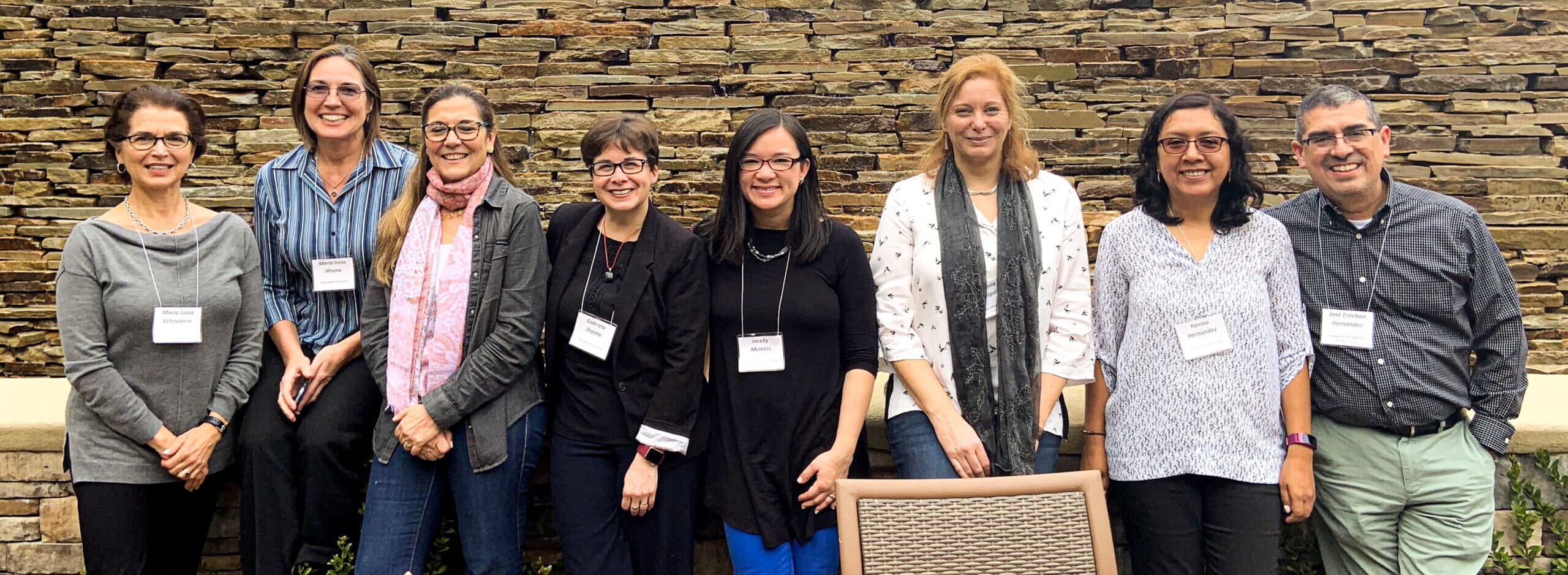
About TeCHS
Mission Statement
The Texas Coalition for Heritage Spanish (TeCHS) seeks to provide a cooperative platform to support the success of Spanish heritage language speakers and their communities in Texas, assisting and promoting bicultural and bilingual development in the state.
Background on Spanish as a Heritage Language (SHL)
In the past decades, the field of Spanish as a Heritage Language (SHL) has advanced in several areas, becoming a relevant subdiscipline in language research and pedagogy. The following items introduce an overview of background trends that currently influence and challenge the field. At the national level, we found:
- Growing research field in Heritage Languages, particularly Spanish, continues to provide new understanding of heritage learners’ needs and capacities. Innovative proposals in education, professional, and community engagement have arisen, but there are still pressing needs on curricular adaptations, assessment, teaching materials, teacher training, and meaningful connections with the ESL and Bilingual Education fields. (Carreira and Kagan 2018; Pascual y Cabo 2015, 2016; Fairclough and Beaudrie 2016; Beaudrie et al. 2014).
- The number of Hispanic students entering the US educational system at all levels continues to increase, with particular challenges in different regions regarding bilingual education, retention and graduation. (http://www.pewresearch.org/fact-tank/2016/07/28/5-facts-about-latinos-and-education/; Schheneider et al. 2006).
- The changing political landscape in the US has brought forward diverse monolingual ideologies, negatively affecting all LOTE speakers but particularly those who speak Spanish. (Krogstad & Lopez 2017; García & Kleifgen 2010).
Regarding the state of Texas:
- Growing population in Texas (it added 6,617,294 people from 2000 to 2015, a 31% increase, https://www.census.gov/quickfacts/TX)), including a large percent increase in the Hispanic communities, which reached about 40% of the total population in 2015. This continuous growth brings specific demands on education, health care, and social services across the state.
- Attrition rate of Hispanic students in high school was 29% in 2017, surpassing attrition of white and African-American students; this is, 1 in 3 Hispanic students dropped from the secondary educational level between 2016 and 2017. (http://www.idra.org/research_articles/attrition-dropout-rates-texas/). This number is below national average for Hispanic students. It is unclear how state educational and lawmakers bodies are dealing with this challenge, but an academic organization such as the TeCHS could serve advising and supporting initiatives to respond to this problem.
- Finally, there are a number of higher education institutions with strong SHL programs and initiatives across Texas; yet we tend to work in relative isolation with little information shared across our systems. The TeCHS would therefore provide a platform to strengthen relationships and advance common goals.
TeCHS Goals
- Serve as platform for sharing ideas, data, and resources to advance the objectives of diverse SHL language programs in the state; propose annual symposium/workshop.
- Design and disseminate effective procedures to create, redesign, and evaluate SHL language programs at all educational levels, including community-based programs. Share curriculum models, syllabi, materials, etc. among institutions offering SHL programs at the primary, secondary and college level.
- Actively support community-led initiatives, creating pathways to better connect Hispanic organizations with educational institutions.
- Help inform policy-making bodies such as the Texas Education Agency, the Texas Legislature, and local government bodies on issues that relate to Spanish language education in the state.
- Establish connections with other state associations (Texas Association for Bilingual Education, Texas Foreign Language Association, etc.) to create more comprehensive frameworks for Spanish language teaching and learning in Texas, including programs/events dedicated to teaching preparation and professional development.
